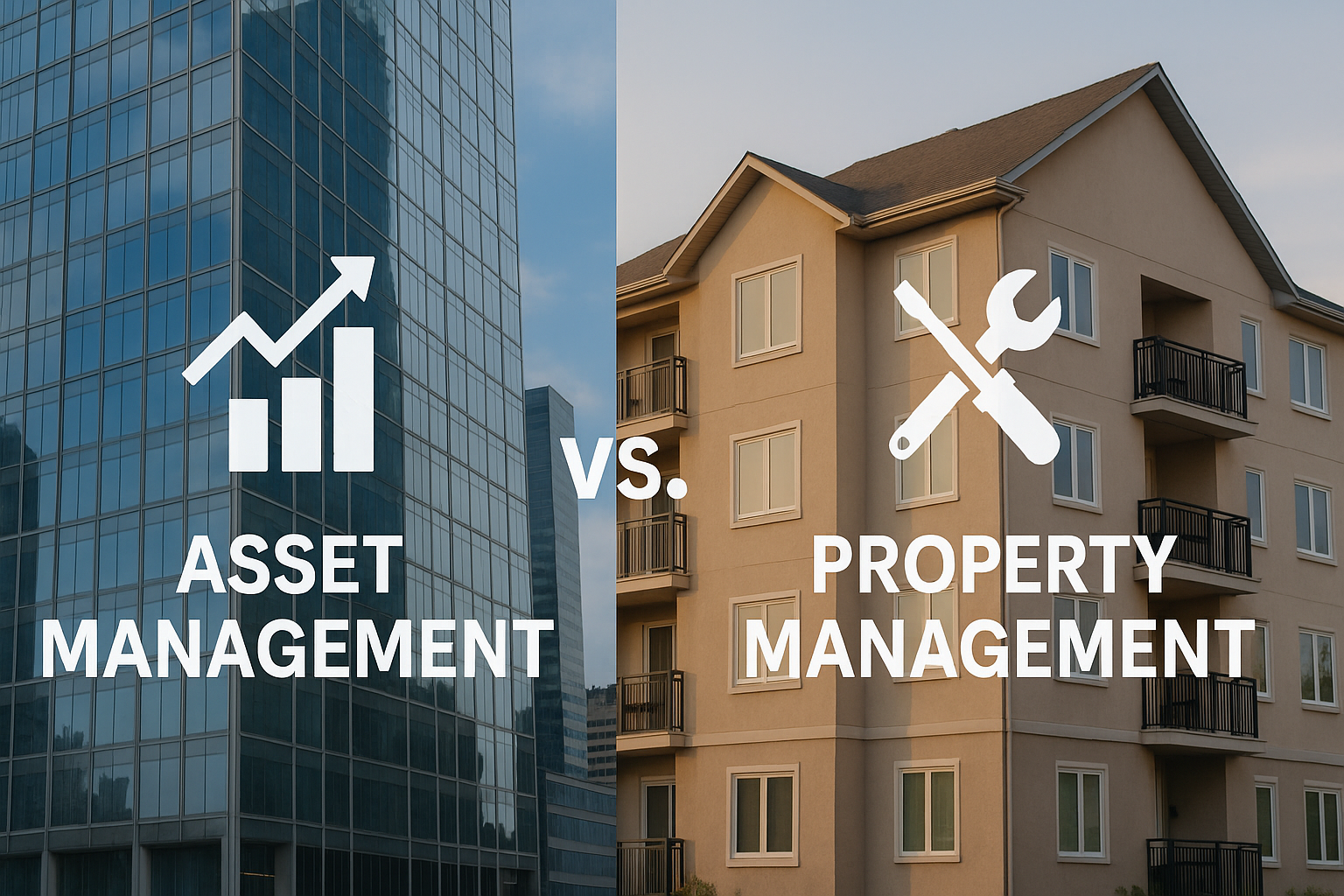Understanding Asset Management vs Property Management
In commercial real estate, understanding asset management vs property management is crucial for investors aiming to maximize returns and optimize property performance. According to Investopedia.com, “Asset management is the practice of buying, selling, and managing investments, commensurate with specific risk tolerances, to increase wealth over time, while Property management is the daily oversight of residential, commercial, or industrial real estate by a third-party contractor.”
Although they are often used interchangeably, asset management and property management represent two distinct roles with different scopes, strategies, and impacts.
Comparison Chart: Asset Management vs Property Management
| Aspect | Property Management | Asset Management |
|---|---|---|
| Scope of Work | Day-to-day operations, maintenance, and tenant relations | Strategic planning, investment performance, and asset growth |
| Focus | Tenant satisfaction, building operations | ROI, long-term appreciation, investment goals |
| Budget Type | Operating expenses (OpEx) | Capital expenses (CapEx) |
| Time Horizon | Monthly or annually focused | Multi-year, long-term strategy |
| Revenue Management | Rent collection, lease enforcement | Rent optimization, market analysis |
| Expense Management | Repairs, utilities, staffing | Renovations, acquisitions |
| Reporting | Maintenance logs, occupancy, and tenant feedback | ROI, NPV, IRR, cash flow analysis |
| Decision-Making | Operational within set guidelines | Strategic decisions like repositioning and refinancing |
| Risk Management | Maintenance issues, tenant defaults | Market, financial, and investment risks |
| Collaboration | Tenants, vendors, service providers | Investors, analysts, and financial planners |
| Performance Metrics | Occupancy rate, tenant satisfaction | NOI, cap rate, asset value appreciation |
| Tenant Relations | Direct communication, issue resolution | Lease alignment with asset strategy |
| Exit Strategy | Lease renewals, tenant retention | Sale timing, repositioning, and refinancing |
| Compensation | Flat fee or percentage of revenue | Performance-based compensation |
| Skills Required | Tenant handling, operations, and budgeting | Financial analysis, investment strategy |
| Technology Used | Maintenance tracking, property software | Financial modeling, asset management platforms |
Want this chart as a free download? Get your exclusive PDF here and make smarter investment decisions today!
Why the Distinction Matters
Understanding the difference between asset management and property management helps investors allocate responsibilities wisely, improve efficiency, and drive profitability.
Both roles are indispensable in the success of commercial properties. Knowing when to deploy each and how to align them can be a game-changer for your real estate investments.
Importance of a Commercial Real Estate Broker
Whether you’re expanding a portfolio or managing an existing asset, having a seasoned commercial real estate broker is vital. Brokers like Larry Emmons bring unmatched market insight, connect you with qualified investors and tenants, and help implement both property and asset management strategies effectively.
Larry Emmons is an experienced CRE broker and can help you strategize and align your investment objectives with actionable property-level operations. Contact Larry today for a personalized consultation.
